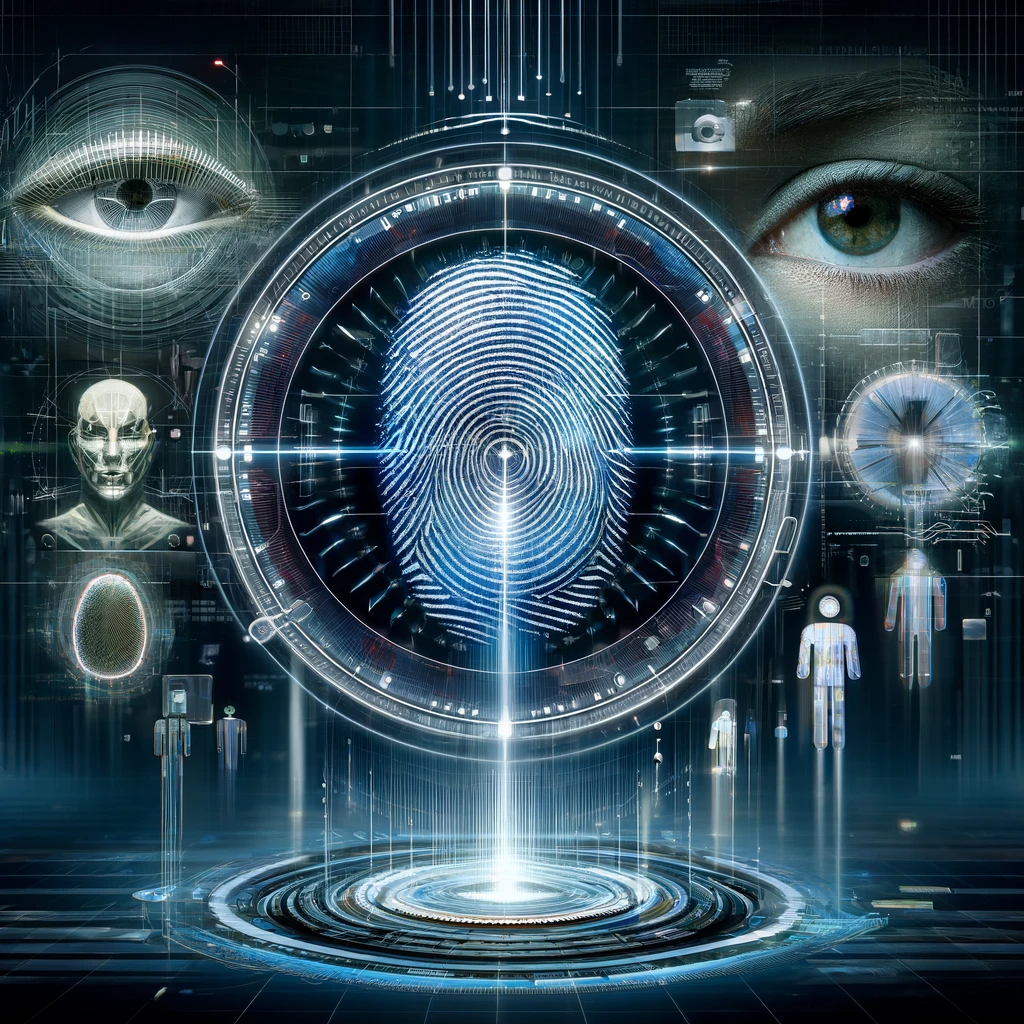
In today’s interconnected world, traditional methods of authentication, such as passwords and PINs, are no longer sufficient to protect sensitive data and secure digital transactions. As cyber threats continue to evolve, organizations are turning to more robust and reliable authentication mechanisms to verify the identity of users and safeguard against unauthorized access. One such technology that has gained widespread adoption is biometric authentication. In this blog post, we’ll explore the concept of biometric authentication, its applications in cybersecurity, and the benefits it offers for enhancing security in the digital age.
What is Biometric Authentication?
Biometric authentication is a security process that uses unique biological characteristics, such as fingerprints, facial features, iris patterns, or voiceprints, to verify the identity of individuals. Unlike traditional authentication methods that rely on something the user knows (e.g., passwords) or has (e.g., smart cards), biometric authentication is based on something the user is, making it inherently more secure and reliable.
Applications of Biometric Authentication in Cybersecurity
Biometric authentication has numerous applications in cybersecurity across various industries and sectors, including:
- Access Control: Biometric authentication is commonly used for access control in physical and digital environments, such as unlocking smartphones, laptops, and other devices, accessing secure facilities, and logging into computer systems and networks.
- Identity Verification: Biometric authentication is used for identity verification in various applications, including border control, airport security, financial transactions, and online account access. Biometric identifiers, such as fingerprints or facial scans, are used to verify the identity of individuals and prevent unauthorized access.
- Time and Attendance Tracking: Biometric authentication is used for time and attendance tracking in workplaces, schools, and other organizations to accurately record and verify the attendance of employees or students using biometric identifiers, such as fingerprints or facial scans.
- Payment Authentication: Biometric authentication is increasingly being used for payment authentication in mobile payment systems, online banking, and e-commerce platforms to verify the identity of users and authorize transactions securely.
- Healthcare Authentication: Biometric authentication is used in healthcare settings to verify the identity of patients, healthcare providers, and staff members, ensuring secure access to electronic health records (EHRs), medical devices, and sensitive healthcare information.
Benefits of Biometric Authentication
Biometric authentication offers several key benefits for enhancing security in the digital age:
- Enhanced Security: Biometric authentication provides a higher level of security compared to traditional authentication methods, as biometric identifiers are unique to each individual and difficult to replicate or forge.
- Convenience and User Experience: Biometric authentication offers a seamless and user-friendly authentication experience, eliminating the need for users to remember complex passwords or carry physical tokens. Users can authenticate themselves quickly and easily using their biometric traits, such as fingerprints or facial scans.
- Reduced Risk of Credential Theft: Biometric authentication reduces the risk of credential theft, such as password guessing, phishing attacks, and credential stuffing, as biometric identifiers cannot be easily stolen, shared, or intercepted.
- Improved Compliance and Regulatory Compliance: Biometric authentication helps organizations comply with industry regulations and data protection laws, such as the General Data Protection Regulation (GDPR) and the Health Insurance Portability and Accountability Act (HIPAA), by providing strong authentication mechanisms and protecting sensitive data.
- Scalability and Flexibility: Biometric authentication can be easily scaled and adapted to meet the needs of organizations of all sizes and industries, from small businesses to large enterprises. Biometric solutions can be deployed across various platforms and devices, including smartphones, tablets, laptops, and IoT devices.
In an era of increasing cyber threats and data breaches, biometric authentication offers a powerful and reliable solution for enhancing security in the digital age. By leveraging unique biological characteristics to verify the identity of individuals, biometric authentication provides a higher level of security, convenience, and user experience compared to traditional authentication methods. As organizations continue to adopt biometric authentication across various applications and industries, they can effectively protect sensitive data, prevent unauthorized access, and safeguard against evolving cyber threats in today’s interconnected world.

Penetra Cybersecurity is at the forefront of defending the digital frontier, providing cutting-edge solutions to protect businesses and organizations from the ever-evolving threats of the cyber world. Established with a mission to create a safer internet for everyone, Penetra leverages a blend of advanced technology, expert knowledge, and proactive strategies to stay ahead of cybercriminals.
Ready to take the next step towards a more secure future? Schedule a consultation with us today and discover how we can help protect what matters most to you. Don’t wait until it’s too late—with Penetra Cybersecurity, your business isn’t just secure; it’s imPenetrable.




